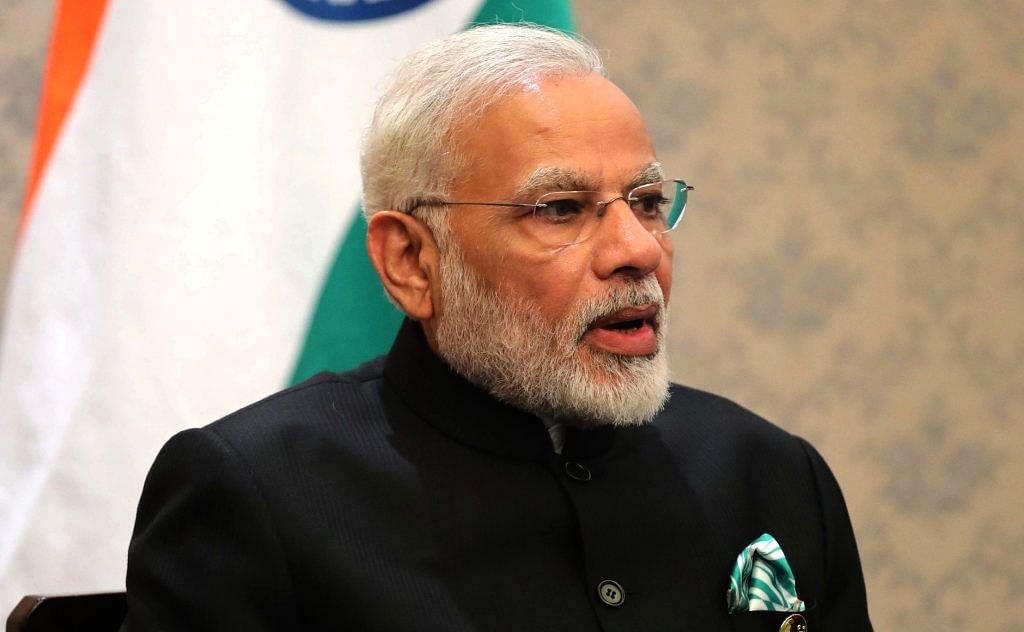As he plunges into his second term, backed by a huge majority in Parliament, Prime Minister Narendra Modi will travel to Bishkek in Kyrgyzstan for the Shanghai Cooperation Organisation summit on 13-14 June, where he will meet several fellow strongmen, including China’s president Xi Jinping, Russia’s Vladimir Putin and Kazakhstan’s Kassym-Jomart Tokayev.
But there will be one meeting that already seems poised to overshadow every other development at the summit – a meeting between Modi and Pakistan Prime Minister Imran Khan.
Between them, Modi and Imran Khan rule over 1.5 billion people. Barely three months ago, both were daggers drawn, as Modi sent the Indian Air Force to strike deep inside Pakistani territory in retaliation against the 14 February Pulwama attacks; Imran Khan’s Pakistan Air Force struck back and shot down a MiG-21, capturing Indian pilot Abhinandan Varthaman.
Modi took to the campaign trail with a vengeance in the Balakot aftermath, insisting that only he – who else, he asked – could keep India secure against the evil machinations of the Pakistanis. “Desh surakshit nahin hoga, toh viksit nahin hoga (the country won’t develop if it isn’t safe),” he said, asking voters to “vote for Modi” in the familiar third person reference he uses for himself.
Also read: Modi, Imran Khan to meet 13-14 June in Bishkek, begin process to resume dialogue
The irony of the Modi-Imran meeting in Bishkek, which kickstarts a return to dialogue between India and Pakistan, is that Imran Khan’s Pakistan, in many ways, has helped Modi come back to power.
Think about it. The Pulwama attacks so infuriated the nation and the BJP that it gave Modi the leeway to contemplate the Balakot air strikes – India had never struck so deep inside Pakistan before. Modi ignored the fog of war that surrounded the number of people killed at the Jaish-e-Mohammed camp in Balakot. Was it 300 or 350 or 30 or 35? Or just one dead crow?
It didn’t matter. Modi had demonstrated that he had the courage to ignore world opinion and punish Pakistan, and that the people as well as the international community would support him as he went about doing so.
And now, peace is in danger of breaking out between India and Pakistan. Officials on both sides are intensely involved in drawing up an agenda for Bishkek. Cross-border terrorism is obviously on top of the charts. Modi will insist that all cross-border infiltration comes to an end and that Pakistan abide by the promise it made to Atal Bihari Vajpayee, the last BJP prime minister, when he visited Pakistan in 2004, that Pakistan will not allow its territory to be used by any terror group plotting operations against India.
Also read: Modi govt plans to resume oil imports from Iran, skirt US sanctions
PM Modi is also stitching together his own “garibi hatao” pledge. The ministry of external affairs, responding to Imran Khan’s congratulatory call to Modi Sunday, said, “Recalling his initiatives in line with his government’s neighbourhood first policy, Prime Minister Modi referred to his earlier suggestion to the Prime Minister of Pakistan to fight poverty jointly…”
Naturally, to give peace a chance, cross-border terrorism must end, the PM added.
So, what does the real power behind Imran Khan’s throne, Pakistan army chief General Qamar Javed Bajwa, think of the potential peace moves? Rumours inside Pakistan have it that Bajwa wanted to stay on for another three-year term when his first ends in November – remember, former army chief Ashfaq Parvez Kayani stayed on for a second term as well? – but Imran Khan isn’t ecstatic about the idea and has suggested that he stay on for one more year.
Question is, if Modi demands the end of cross-border infiltration as the price for peace, how is the Pakistani establishment, bred on an anti-India diet for years and years, going to react?
If Bajwa & Friends look closely, they will see that Pakistan’s economy is in bad shape. The country has just taken another $6 billion loan from the International Monetary Fund (IMF). It is still on the FATF grey list, which means it must close all channels for money-laundering and terror financing, otherwise it risks losing $10 billion annually.
Also read: Japan, US, EU want change in WTO rule on farm subsidy that will hurt India
When Imran Khan shakes hands with Narendra Modi in Bishkek, he must also realise that it is a moment of reckoning of sorts for Pakistan. The international community has already warned Imran Khan that dialogue with India is essential for Pakistan to return to a state of economic and political normalcy. In return, India wants an end to cross-border terrorism.
Truth is, both Imran Khan and Modi need each other – even if they call each other names in public. Modi needs Pakistan to tell his people that he will protect them from the aggressive avatar next door; Imran Khan needs Modi to point towards the BJP’s majoritarian agenda and say, ‘How lucky we are to live in a separate Muslim country!’
As for Putin and Xi Jinping, Modi’s relationships with both leaders is strong. India is said to be preparing to invite President Xi in July, to return the compliment of the 2018 Wuhan summit. And Russia remains India’s largest defence supplier despite a diversification of weapon supplies from the US.
The Shanghai summit will give way to the G-20 summit in Japan later in June – both Putin and Xi Jinping will be there again, as will US President Donald Trump. For Modi in his second term, his foreign policy graph is only going up.
